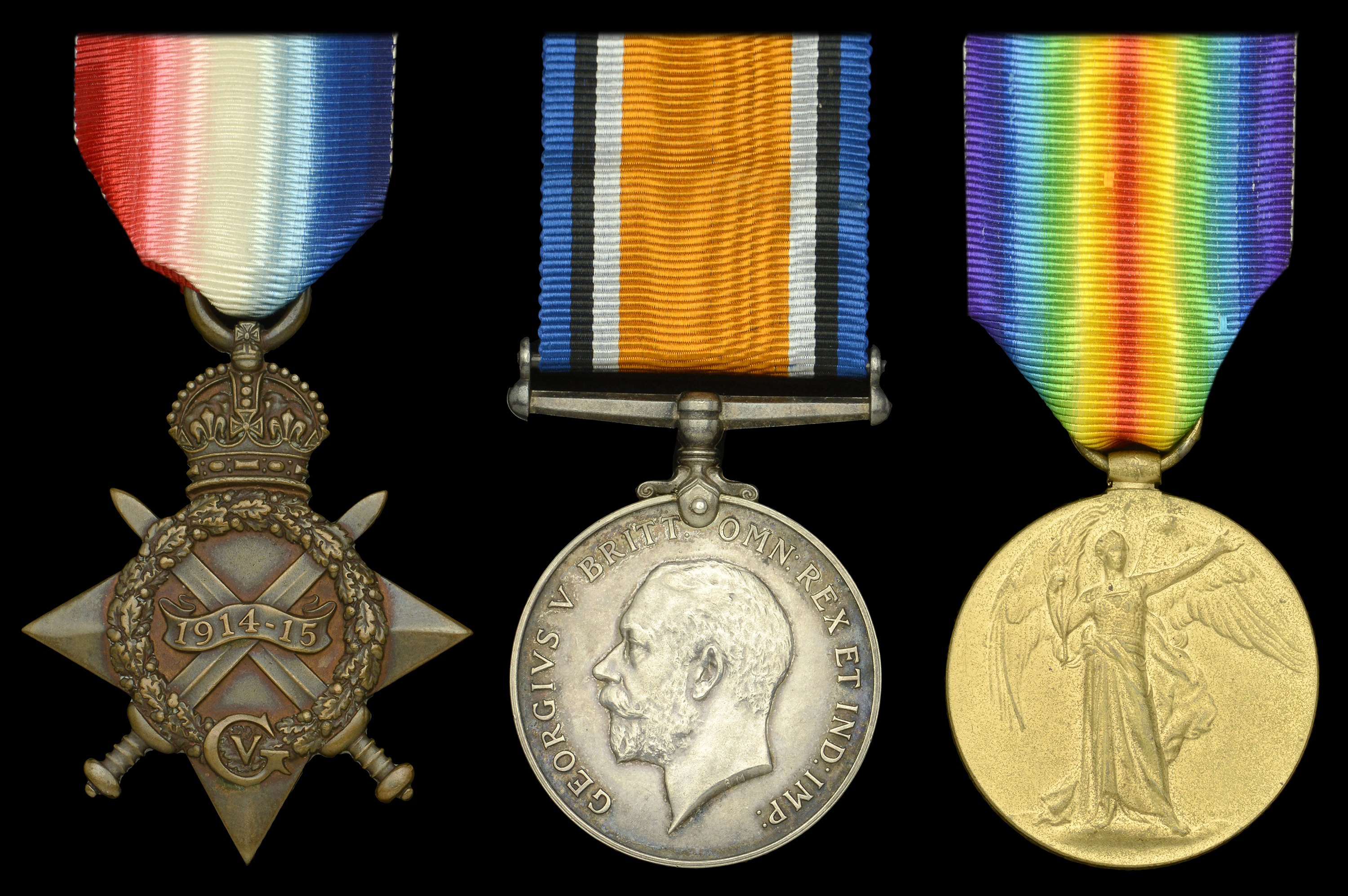226
Three: Corporal E. Smith, 11th (Lonsdale) Battalion, Border Regiment 1914-15 Star (16350...
Orders, Decorations, Medals and Militaria
Sale Date(s)
Venue Address
General delivery information available from the auctioneer
If you are successful in purchasing lot/s being auctioned by us and opt for the item/s to be sent to you, we will use the following methods of shipment:
Within the UK
If you live within the UK, items will be despatched using Royal Mail Special Delivery. This service provides parcel tracking (via the Royal Mail website) and next weekday delivery (betwen 9am and 1pm). Items delivered within the UK are covered by our insurance company. Heavy and bulky lots will be sent by courier, in discussion with the client.
Outside of the UK
If the item/s being sent are worth under £1000 in total they are sent using Royal Mail’s Signed For International service. This ensures the item must be signed for when it is delivered.
If the item/s being sent are valued at over £1000 in total they will be sent using FedEx. This service allows next day delivery to customers in many parts of the US and parcels are fully trackable using the FedEx website.
Shipping Exceptions
Certain lots such as those containing glass or sharp implements, etc., may not be suitable for in-house shipping within or outside of the UK. Please contact Noonans with any queries.
Important Information
Auctioneer's Buyers Premium: 24% (+VAT)
There is an additional charge of 4.95% (+VAT/sales tax)





